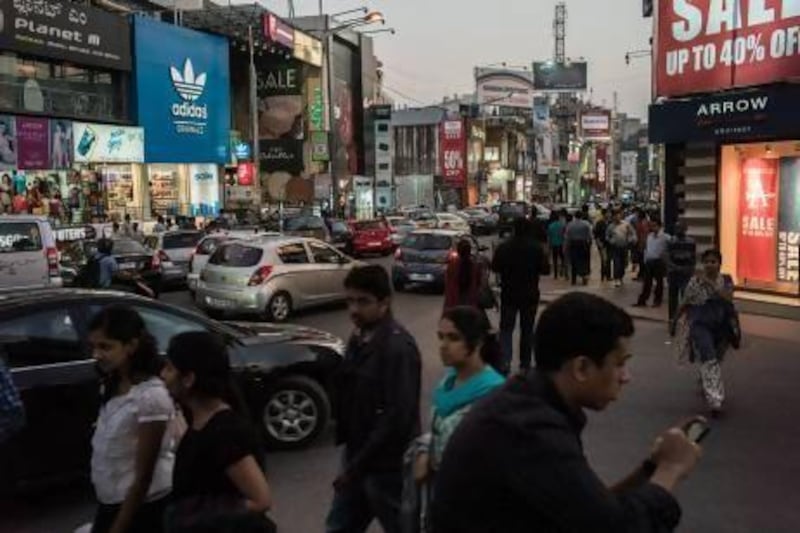India has lowered its expectations for economic growth this year, as the government yesterday issued its most pessimistic forecast for a decade.
The economy is projected to grow at just 5 per cent in this financial year, which runs until the end of next month, according to the latest estimate.
"This slowdown in growth over this fiscal year has been broad based, with weak manufacturing sector performance on the back of sluggish investment activity and slowing consumption, dragging services growth lower too," said Gaurav Kapur, a senior economist at RBS India.
"The farm economy was also expected to show poor growth on the back of bad monsoons."
The prime minister, Manmohan Singh, has said that the country needs to achieve a growth rate of 8 per cent a year to create jobs for the millions entering the workforce each year.
But the latest projection is significantly lower than many forecasts, including RBS's, which was for growth of 5.4 per cent.
Economic growth slowed to 5.3 per cent in the quarter between July and September. The country is grappling with large budget and current account deficits, a weak rupee and high inflation.
"Although India's growth remains one of the highest in the world, it has slowed markedly and inflation remains elevated," the IMF said in a report released on Wednesday.
"The slowdown has been due to structural and supply-side factors, with cyclical and global factors also contributing.
"Mainly led by falling infrastructure and corporate investment, the slowdown has now generalised to exports and private consumption," the IMF report added.
"The financial positions of banks and corporates, both strong before 2009, have deteriorated. With policy space strictly circumscribed because of high fiscal deficit and elevated inflation, the economy is in a weaker position than before the global financial crisis."
The government announced a wave of "big bang" economic reforms last September including opening up its retail and aviation sectors to more foreign investment in an effort to boost the economy.
This followed warnings by ratings agencies that India was at risk of having its investment grade status downgraded to junk, partly because of policy paralysis.
This year, the country has taken steps including raising rail fares and government-run retailers have been allowed to make small increases in diesel prices in an effort to reduce the nation's fiscal deficit.
"There are signs that this slowdown in economic activity may have bottomed out but the strength of the recovery would critically depend upon a revival in investments," said Mr Kapur. "Recent measures taken by the government to improve the investment climate and to attract foreign capital should help in the economic recovery over the next fiscal year."
The central bank last week lowered its forecast for economic growth in the current financial year 5.5 per cent from a previous projection of 5.8 per cent. Last July, its forecast was for growth of 6.5 per cent.
Serious concerns about slowing growth prompted the central bank last week to cut India's benchmark interest rate to 7.75 per cent from 8 per cent, the first time the bank had reduced the key rate in nine months. Fitch Ratings said on Monday that the policy decisions made by the government in recent months were "encouraging signals", but that it would have to monitor the execution of these measures and the actual impact they had on economy.
"India's patchy performance on policy implementation, and the approach of elections in 2014 could impede fiscal consolidation, suggesting political and implementation risk remain significant," Fitch said.





